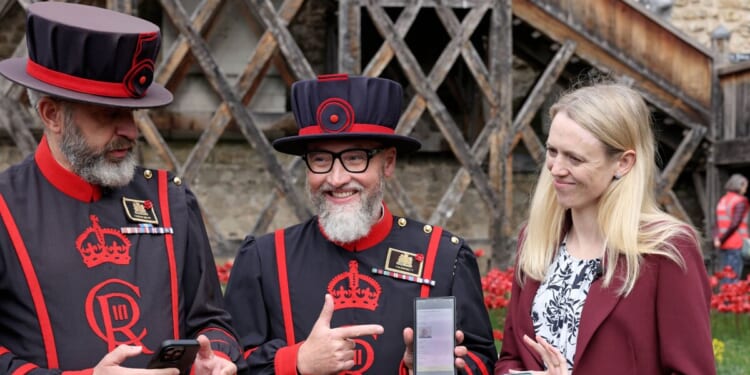Military veterans will be used as a “case study” for digital ID cards after the launch of an online version of their existing physical ID. The government today launched a digital ID for veterans, aiming to provide a quicker way for those who have served in the military to prove their status and more easily access the services they are entitled to.
The launch comes a month after the Prime Minister announced plans to introduce a mandatory digital ID for anyone working in the UK as part of efforts to clamp down on illegal working. Minister for Veterans and People Louise Sandher-Jones said the introduction of a digital ID demonstrated the Government’s commitment to helping veterans in their post-service life. She told the Daily Express: “The digital veterans’ card is part of us showing our commitment to veterans. We have a whole range of initiatives that demonstrate our absolute commitment to veterans.
“The digital card is a life-like replica of the physical card, but the great thing about it is that for people like me who are always carrying a smartphone but very rarely carry a wallet, it means that I can just reach for it and it’ll be there.
The ID aims to make it easier for veterans to register their service background with their GP to access the healthcare opportunities, confirm their military background to access supported housing through Op FORTITUDE and get support into high-value careers with Op ASCEND – a free government-backed service linking them up with career advisors and veteran-friendly employers.
Ian Murray, Minister for Digital Government, acknowledged that the rollout of digital cards for veterans could demonstrate to the public how the credentials work and alleviate some of the fears surrounding their introduction.
The Labour MP for Edinburgh South said: “It’s probably a demonstration to the public by default, in that sense, on the basis that this is the first use case for having a digital credential on your smartphone, and that digital credential is the first sort of verifiable one that the Government have now launched.
“So, using a closed group like the 300,000 veterans is a really good case study to show that it does work.
“And it will be very beneficial, it shows the technology works, that shows that we can prove and dispense with some of those legitimate concerns around privacy and security and those kinds of issues.”
But the purpose of the veteran card is not to be a test run for digital IDs, he said.
He added: “The launch of this card is about making the lives of veterans easier, to access government services and the benefits of that card, rather than being about demonstrating the much wider issues that you talk about… in terms of digital ID.”
The roll-out was met with a tepid reaction from veterans.
Garrath Williams, founder of Veterans Can, acknowledged that the digitalisation of veterans’ ID was an inevitable step but acknowledged the emotional reaction some who served might have.
He told the Daily Express: “I have no issue with it in principle, it is development after all, and soon, we’ll all be on hoverboards anyway!
“That said, while physical wallets are still a thing, many veterans like the idea that their Veteran ID card takes the spot where their military ID used to go.”
The veteran card is the first digital document to be stored in the One Login app the Government has been developing.
It is also planning to launch digital driving licences.

















